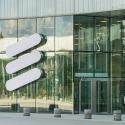
Ericsson appears to be first out of the traps with a 5G standalone core network contract from Japanese operator KDDI.
The Sweden-based vendor announced that it has been selected to deploy a cloud-native dual-mode 5G core in KDDI's 5G standalone network in Japan, "paving the way to ramp-up 5G use case development and realization."
It's not clear whether Nokia will also provide standalone 5G core technology to KDDI; like Ericsson, the Finnish vendor announced the completion of a 5G core standalone network trial with the operator in February this year.
KDDI has previously revealed that Ericsson, Nokia and Samsung Electronics will be its primary 5G partners. The operator has also been working with Cisco Systems, which trumpeted its role in supporting the operator's "transition to 5G" with the Cisco Virtualized Packet Core and Control and User Plane Separation (CUPS) architecture.
In September, KDDI said it completed trials of network slicing in a 5G standalone network in collaboration with Samsung.
Big in Japan
The two Scandinavian vendors have been picking up various 5G contracts in Japan, particularly as Huawei's star continues to wane.
Only this week, Nokia joined Ericsson as a provider of cloud-native, 5G core technology to KDDI rival SoftBank Corp. The vendors also supply 5G RAN technology to SoftBank.
In May, Nokia announced it was working with KDDI on a joint initiative aimed at delivering a fully cloudified radio access network (RAN) solution.
Nokia has also landed a core role at Rakuten Mobile, although Japan-based NEC is the main supplier of Rakuten's 5G core. NTT DoCoMo recently picked NEC for the deployment of its 5G standalone core.
KDDI, NTT DoCoMo and SoftBank all launched commercial 5G services in March this year. In April, SoftBank and KDDI established a joint venture, 5G Japan Corporation, to promote the rapid buildout of 5G networks in Japan's rural areas.
Upstart operator Rakuten Mobile then launched 5G services in September 2020 following the deployment of its 4G network in June.
Related posts:
— Anne Morris, contributing editor, Light Reading
Read more about:
AsiaAbout the Author(s)
You May Also Like












